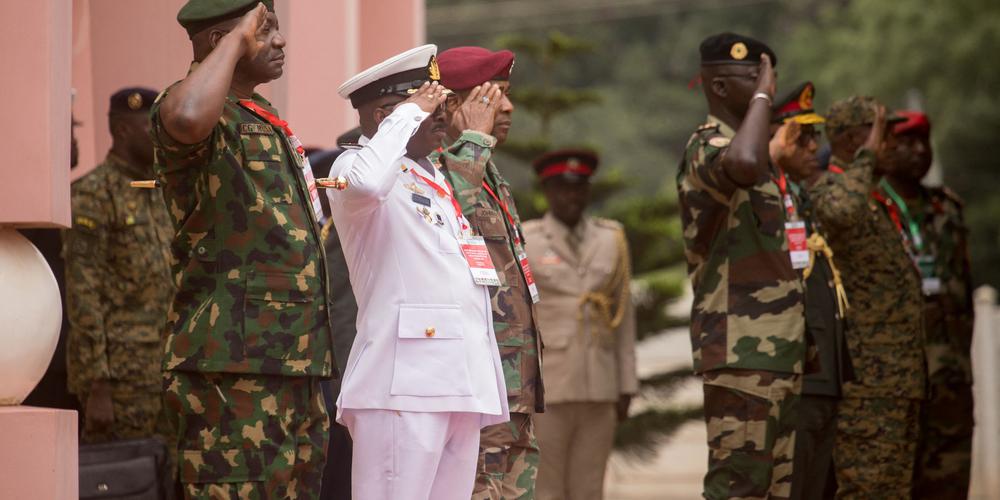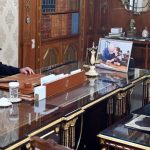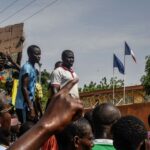The ECOWAS force said Friday “ready to intervene” in Niger and the day of this armed intervention has been fixed, but a “possible” diplomatic mission could go to Niamey on Saturday
“We are ready to intervene as soon as the order is given. The day of the intervention has also been set,” said the commissioner for political affairs, peace and security of the regional organization, Abdel-Fatau Musah. He was speaking at the end of a meeting of the chiefs of staff of the West African armies gathered since Thursday in Accra, more than three weeks after the coup d’etat which overthrew the president on July 26 in Niger. Mohammad Bazoum.
Peaceful solution still possible
At the same time, this official announced a “possible” diplomatic mission to Niger on Saturday “to continue to follow the peaceful path to restore constitutional order”. “We are ready to solve the problem peacefully, but it takes two to tango,” Mr. Musah said. But “we are not going to be the ones knocking on the door as they slam it on us,” he added, however.
The latter remain for the moment inflexible and believe that an armed intervention against their country would be an “illegal and senseless aggression”. And they keep the deposed president sequestered, whom they intend to prosecute for “high treason”.
Deteriorated health
“President Bazoum’s conditions of detention are deteriorating. Any further deterioration in his state of health will have serious consequences”, warned the President of Nigeria Bola Tinubu, who currently chairs ECOWAS, during an interview Thursday with the President of the European Council Charles Michel, according to remarks reported on Friday by a European Union official.
For his part, Charles Michel “reiterated the support and full support of the EU for the decisions of ECOWAS, as well as the firm condemnation of the unacceptable coup in Niger”. “The EU will not recognize the authorities resulting from the putsch. President Bazoum, democratically elected, remains the legitimate head of state of Niger,” he insisted.
From Geneva, the intention to prosecute Mr. Bazoum for “high treason” was strongly denounced by the UN High Commissioner for Human Rights, Volker Türk. “This decision is not only motivated by political considerations against a democratically elected president, but it has no legal basis since the normal functioning of democratic institutions has been hindered”.
In his statement, Mr. Türk stressed that the 2021 election of President Bazoum constituted “the first democratic transition in the country’s history, marked by coups d’etat”.
Humanitarian Corridor
Calling on the generals to release him and “immediately restore constitutional order”, the UN human rights chief told them that they “could not arrogate to themselves the right to defy – on a stroke head – the will of the people”.
Also from Geneva, the International Organization for Migration (IOM) has called for the establishment of a humanitarian corridor to relieve the transit centers set up in Niger, where thousands of migrants are stuck. “Recent border and airspace closures have exacerbated the difficulties faced by stranded migrants and hampered IOM’s assisted voluntary return operations,” she said.
Due to its geographical position, Niger is one of the main transit countries in the region for migrants.
At least 28 civilians were also killed earlier this week in violence in several villages in southwestern Niger, near Mali, according to a local official source, a toll that could be heavier according to a security source. The origin of this violence has not been indicated.
This article is originally published on sudouest.fr









